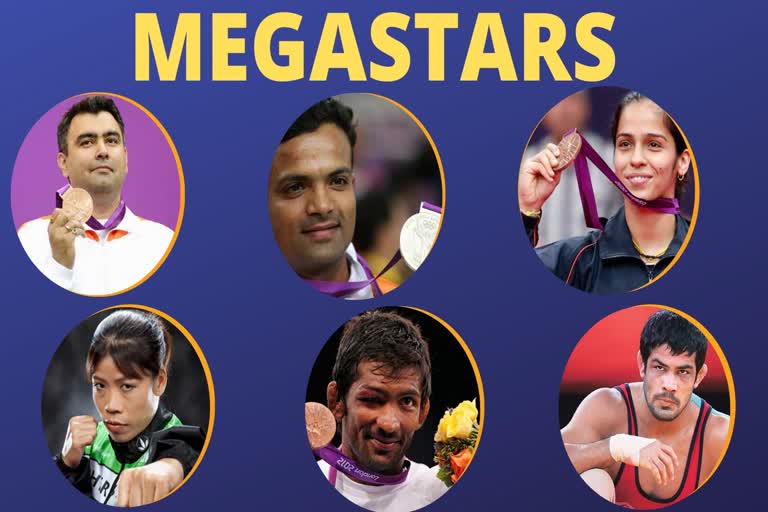Hyderabad: The 2012 London Olympics remains 135 billion strong India's most successful campaign at the games of sporting excellence. The 83-member Indian contingent, led by wrestler Sushil Kumar, a Beijing Olympic Games bronze medallist, vied for the top honours at the Games. India's Olympic history is the second oldest in Asia. We only come second to the Japanese. But in their 100 years of Olympic history, India's best ever performance came in 2012 London Olympics when they won mere six medals, most by an Indian contingent.
Since 1900 Paris Olympics India have won a total of 28 medals, including 9 gold, 7 silver and 12 bronze.
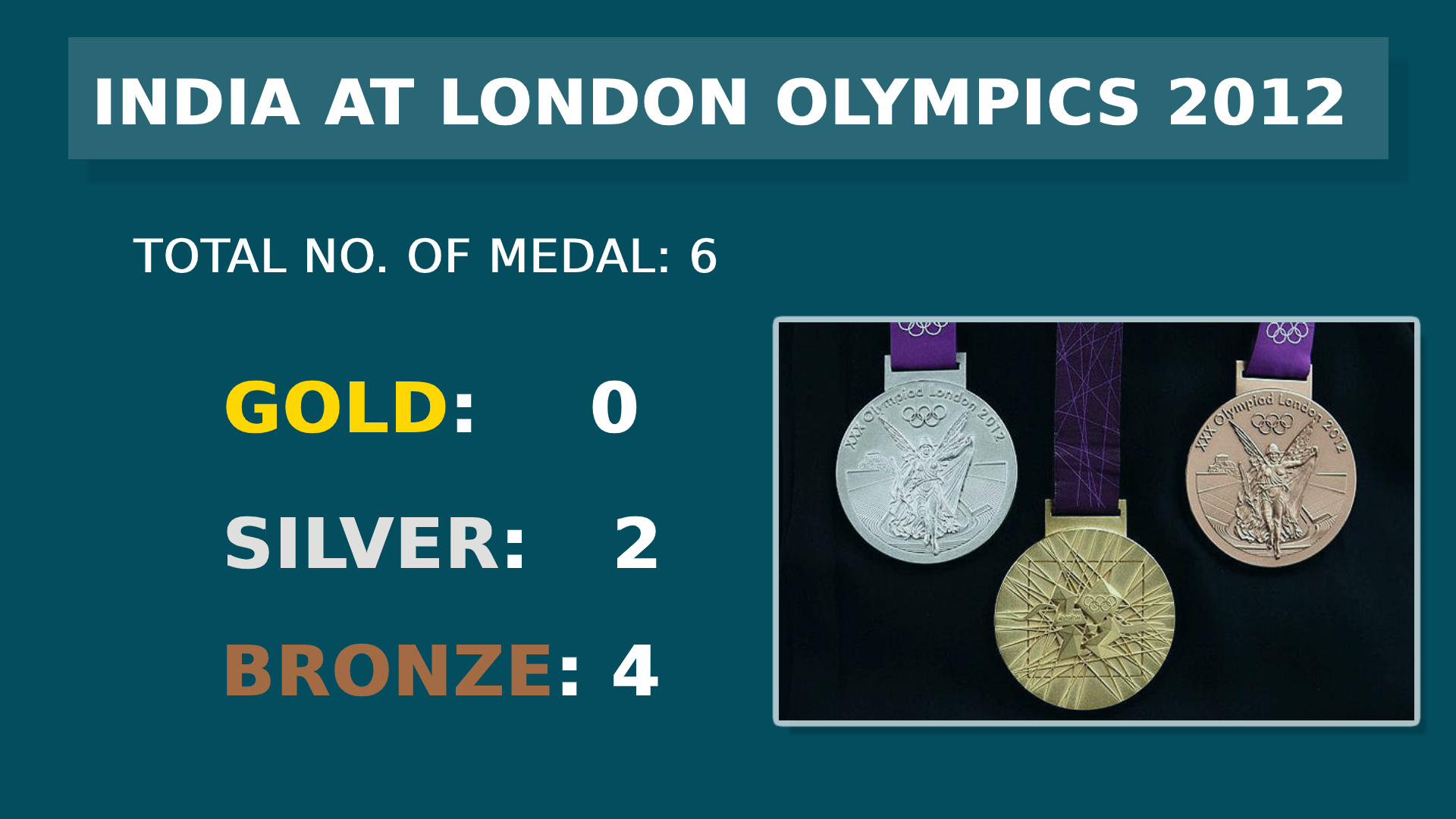
Forget China, Russia and the US we couldn't even match the success of the Japanese. Though India didn't have much to be proud of our athletes were feared well in the 2012 Olympic Games, especially in a few sports. Before the London Olympics, India's best performance at the Games came in 2008 when they bagged three medals in Beijing.
But London success helped Indians take the Olympic sports seriously.
Laypersons' rise to stardom
Following shooter Abhinav Bindra's individual gold at 2008 Olympics, the shooting contingent needed to lead the Indian contingent at the Games.
Gagan Narang opened the medal tally for India at the London Olympics bagging a bronze medal in the 10m Air Rifle event.
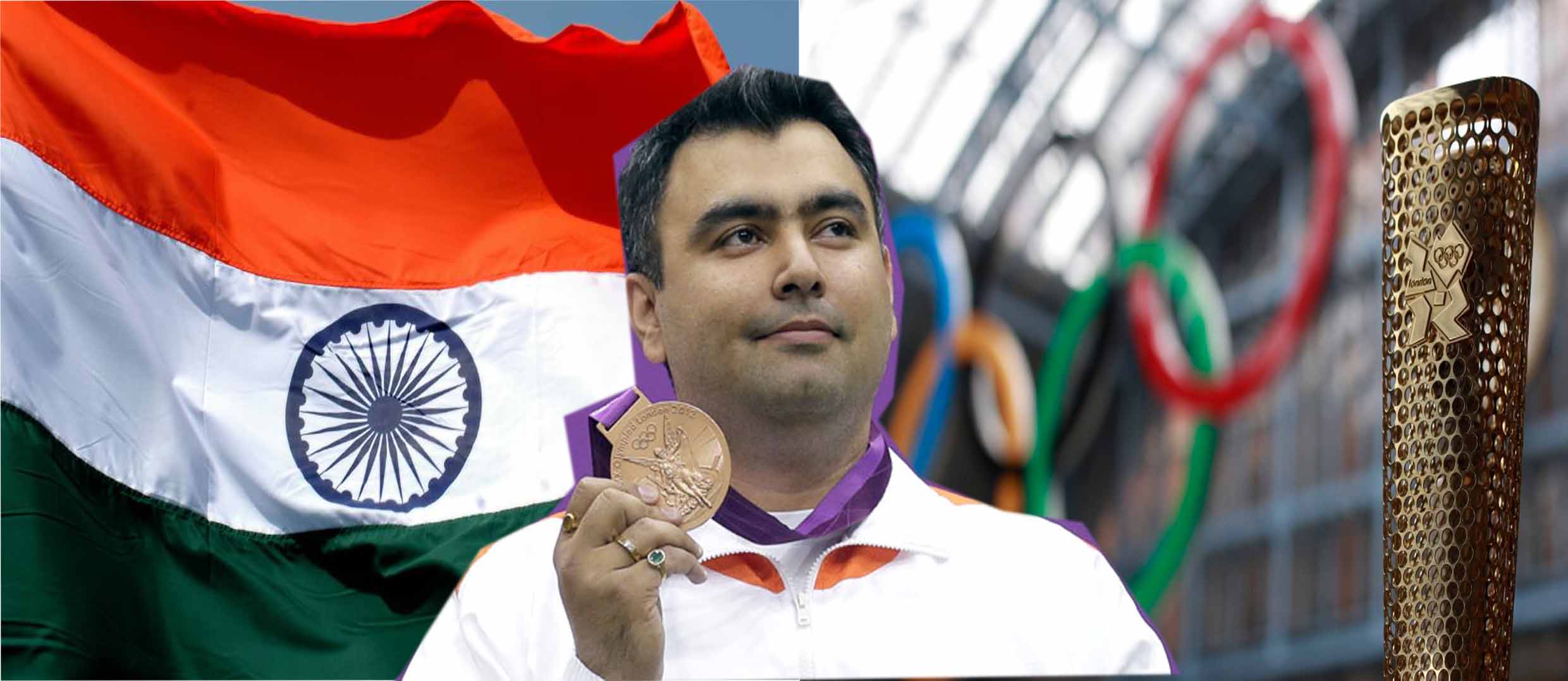
He was followed by his shooting mate Vijay Kumar who won India's first silver in the 25m Rapid Fire Pistol. He was awarded Padma Shri for his achievement at the pinnacle of all sporting events, Olympic Games.
It must be noted that these are the two medals India won in shooting at the 2012 Games. Thereafter the focus shifted to badminton. After heartbreaking quarter-final stage exit in 2008 Olympics, shuttler Saina Nehwal finally won her much desired Olympic medal in 2012 edition of the Games. Eventually, she became country's first-ever women's singles medallist at Olympics as China's Wang Xin pulled out of the match with an injury. Saina's success was later dwarfed by shuttler PV Sindhu who won women's singles silver at the 2016 Rio Olympics.
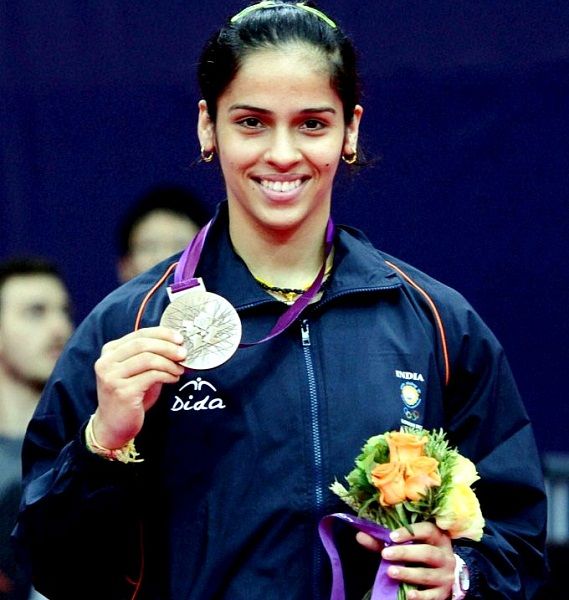
India won her third medal of London Olympics in boxing, a sport which first saw an Indian winning a medal in 2008 when Vijender Singh bagged a bronze. Vijender's Beijing feat was emulated by his sporting peer Mary Kom, six-time AIBA World Boxing Championships gold medallist. Mary's bronze medal, fourth of the Games, meant India surpassed her Bejing tally of three medals.
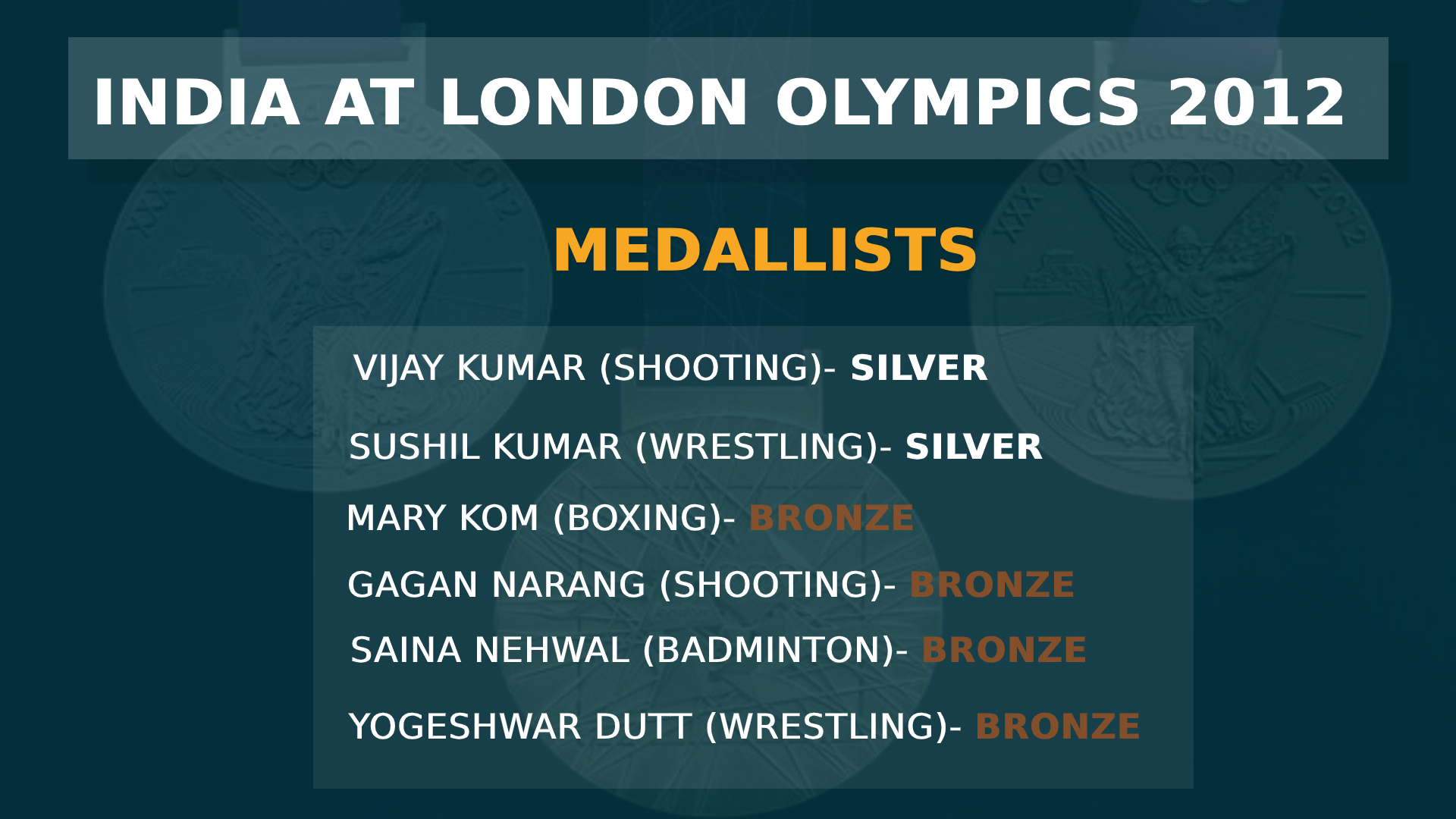
Since Mary was women's boxing's one of the most respected names, she was expected to fetch gold for India. But after making it to the semifinals, she was finally beaten by gold medallist Nicola Adams of Great Britain in the first-ever women’s flyweight event.
After shooting, badminton and boxing then it was the time for Indian wrestlers to shine. The first man to bring wrestling medal was Yogeshwar Dutt who defeated North Korea’s Jong Myong Ri to ensure a third-place finish in the men’s freestyle 60kg category. Yogeshwar Dutt finally settled for a bronze, India’s fifth medal of the event.
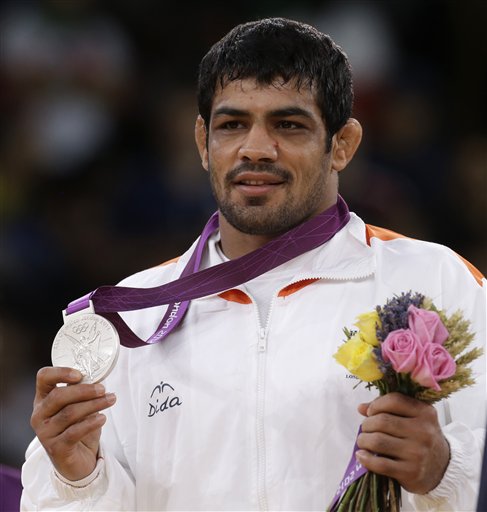
The sixth and final medal won by flag-bearer of the Indian contingent, Sushil Kumar who walked into London Olympics amid much fanfare since his Beijing bronze earned him star status.
Sushil didn't disappoint India either as he won country's second silver medal of the Games. In the process, he scripted history by becoming the first Indian athlete to win two individual medals.
Big names failed to fire
Though Indians have reasons to be happy for returning home with their best-ever Olympic medal haul, their campaign also saw some of the big names failed to make to the podium. Archer Deepika Kumar had entered the London Olympics as the No.1 archer in the world. Therefore she was a strong contender for a medal. But at the iconic Lord's, the Indian archer failed to soak the pressure a big tournament like Olympics enforce on athletes.
Story of poster boy of Indian Olympics, Abhinav Bindra, was very disappointing too. The Beijing Games gold medallist in 10m Air Rifle event, Bindra even failed to qualify for the main draw as he finished 16th in the qualification event.
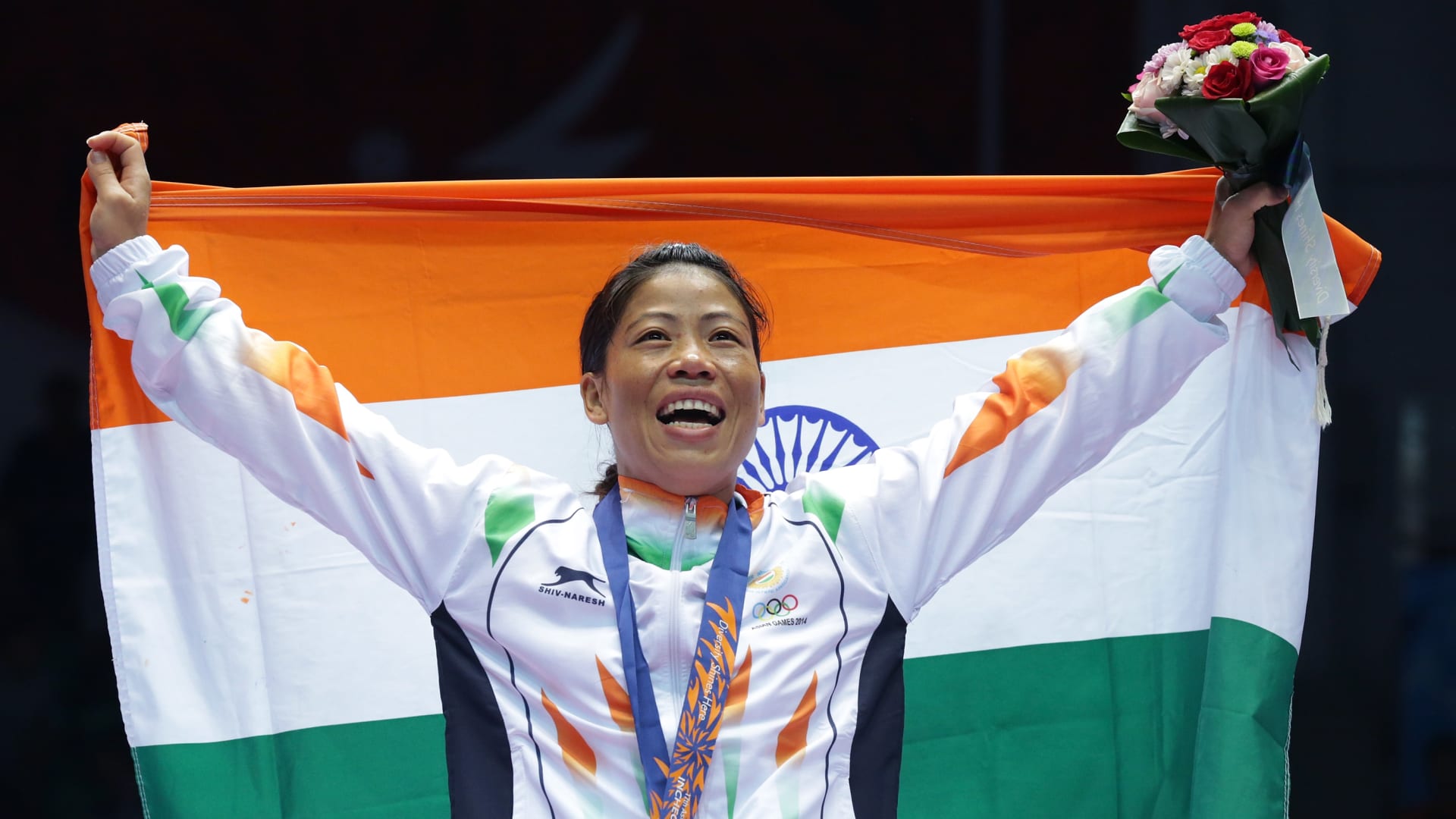
In Tennis, India competed in men's, women's and mixed doubles events. India's men's double pairs - Mahesh Bhupathi with Rohan Bopanna, and Leander Paes with Vishnu Vardhan - bowed out of the Games in the Round of 16. In the women's doubles, Sania Mirza and Rushmi Chakravarthi were defeated in the opening round itself.
Meanwhile, in the mixed doubles, Indian tennis legends Leander Paes and Sania Mirza finished their campaign with a quarter-final exit.
Post 2012 London Olympics era
Though Indians failed to capitalise on their London exploits at Rio four years later, the success of the London Olympics changed the way we Indians approach Olympic sports for ever. Now, athletes are one of the most sought after personalities in the country. Initiatives like Olympic Gold Quest, Khelo India Games and National Centres of Excellence have been taken keeping an eye on 2021, 2024 and 2028 Olympic Games.
Though India's Olympic system is still in its infancy, we can still be proud of our heroes who tackled all hardships to make India proud in London and then in Rio de Janeiro. With more than 70 athletes have already qualified for the 2021 Tokyo Olympic Games, and many more to qualify we can hope for a stellar performance from the Indian contingent in the Japanese capital.
